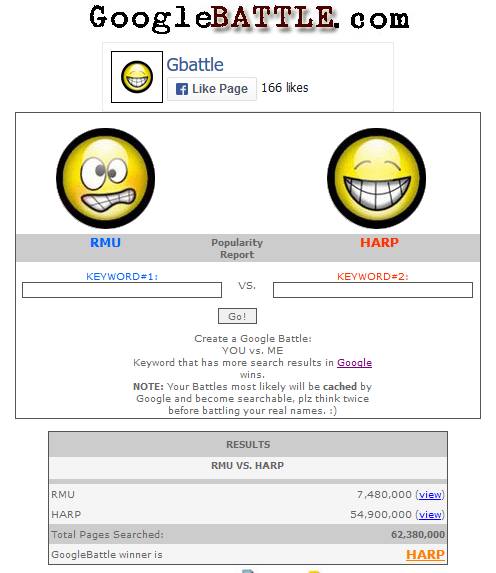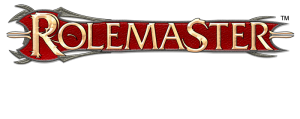The heroes of stories and legends often have extraordinary
abilities , unique magical powers or secret, special
knowledge. Collectively, these are referred to as Talents.
Talents are purchased with Development Points.
Certain Talents may only be purchased during character
creation, like Blood Talents, while others may be learned
any time a character goes up a level. Players are urged to
provide the Gamemaster (GM) with plausible reasons for
allowing a character to purchase the selected Talent. This
process has been simplified by the Talent entries containing
only the descriptions of the effects of the Talent. The player
should work with the GM to find a way of describing how
the talent works so that it fits within the GM’s setting.
HARP is based around Talents. Talents define the player races and they are available to buy during character creation and leveling up. There are 48 talents in the core book, I guess there are more lurking elsewhere but I haven’t looked (Edit: I just looked in Folkways and there are another 22 talents in that book, there could be even more in other books!). Most are just fit and forget, you buy it once and that is that. There is one talent listed with two tiers and two talents with three tiers but most are just a single purchase.
The average cost seems to be in the region of 20DP. Starting characters get 100DPs so talents are definitely affordable but the trade off is that points spent on talents cannot be spent on skills.
Here are three talents, that seem rather typical the first gives a flat +10 bonus across all the related skills, the second gives a +25 to a single skill and the last has no mechanical effect in terms of pluses and minuses but certainly helps with the adventuring life!
Physick
The character has a gift for healing, and receives a +10 bonus on all his healing & medical skills.
Cost: 15
Quiet Stride
The character is naturally light on his feet, giving him a bonus of +25 to Stalking maneuvers.
Cost: 20
Reduced Sleep Requirement
The character requires less sleep than normal. Four hours of sleep are the equivalent of eight hours of sleep for him.
Cost: 15
Special Items
In addition to skills and talents characters can buy special items and special backgrounds, like nobility or law enforcement backgrounds, with DPs. A +5 bonus item costs 5DP and a +1 spell adder costs 10DP for example. I quite like the idea of all the original RM Background options being purchased with DPs.
Multiple Professions
The option to take an additional profession is bought as a 20pt Talent.
I have copied the example from the book to explain this a bit more.
Example: Felzan is a 3rd level Mage. Upon reaching 4th level Felzan decides to learn something about combat and become a Fighter. Felzan’s player pays for the Additional Profession Talent and Felzan is now a Mage(3)/Fighter (1), which is a 4th level character overall. Once Felzan reaches 5th level he may increase his Mage level, increase his Fighter level or add yet another profession. Felzan elects to increase his fighter level making him a Mage(3)/Fighter(2).
So when you advance a specific profession you spend your DPs using that professions costs and the professional special bonuses that happen every x levels only happen when that specific profession hits the right level. So this is the Fighters special bonus paragraph from earlier…
Beginning at first level, and then every fifth level thereafter (5th, 10th, etc.), Fighters gain a +10 bonus to any Combat skill of their choice. No weapon skill can have more than a +30 bonus from this ability. Beginning at first level, and then every third level thereafter (3rd, 6th, etc.), Fighters also gain a +5 bonus to any one skill from the Athletic or Physical categories. No skill may have greater than a +25 bonus from this ability.
So it is these bonuses that advance only when the character hits those levels in that specific profession.
This is of course one of the big differences between HARP and Rolemaster in all versions.
Fate Points
So Fate Points are a core rule in HARP. Each character starts with 3 Fate Points, they can have as many as 5 points but no more.
The points may be used as listed below.
Fate Points may only be used for certain effects, as listed below.
For 1 Fate Point, the player may add a special modifier of +50 to any one roll that he makes for his character.
For 2 Fate Points, the player may add a special modifier of +100 to any one roll that he makes for his character.
For 1 Fate Point, the player may add a special modifier of +50 to his Defensive Bonus for one round.
For 2 Fate Points, the player may add a special modifier of +100 to his Defensive Bonus for one round.
For 1 Fate Point, the player may have 25 subtracted from any one critical his character receives.
For 2 Fate Points, the player may have 50 subtracted from any one critical his character receives.
The GM can award fate points for great role play or they can be bought at leveling up at one Fate Point for 5DP.
Finally in this chapter are the training packages that have already been covered.
The next chapter is equipping your character. I am not going to cover this as the prices are almost identical to Rolemaster. The only stand out is that armour needs to be bought by the piece and ideally fitted to the character for full effect. This will come up again later.
In my next HARP post we cover Adventuring which means that all the skill resolution, resistance rolls and spell casting is covered. That will be much more interesting to us than lists of equipment prices!




The challenge I see with RMU as opposed to RM2 is the apparent lack of willingness to look beyond fantasy (and even then it’s their definition of fantasy). RM has always suffered (IMO) from the lack of a solid, accessible setting, and RMU just seems to accelerate that trend. They also took steps (especially in the combat system) to render it almost useless for non-magic settings if you leave it RAW. The flexibility that came with RM2 (and even RMSS in its own way) seems to be disappearing.
In addition in a recent comment Hurin had noted the amount of HARP that seems to have found its way into RMU. There is nothing wrong with HARP but HARP is not Rolemaster and definitely not RM2!
That got me thinking. Last year I bought HARP Fantasy and HARP SF. I bought them because I want to run a SF game soon and as I have said many times before I have lost my Spacemaster books.
So HARP is certainly not locked into a fantasy setting and not into one single fantasy setting. Shadow World is statted out for HARP and HARP has its own core setting of Cyradon. HARP SF plays out in Tintamar but by default it also shares the same setting as Kulthea and Spacemaster because of the Shadow World connection.
One of the things I like about HARP is that the last release was to truly unify the fantasy and sf rules and make them interchangeable. I only needed the fantasy rules as monsters make great aliens.
There is a massive gulf between RM2 and HARP and I agree there is a lot of HARP in RMU. The skill system is the same, character creation is very similar. The move in RMU to less combat tables is almost a single step towards the HARP way of thinking and that I think is the problem with RMU. The only weakness as I see it with HARP, looking from a RM background point of view, is the combat system and the criticals in particular. The same old critical comes around again and again way too often and even in the same fight. The rest of the combat system works really nicely as far as I can tell.
Another interesting thing is that the HARP forums are far busier than the RM forums if you exclude the BETA test forums. If you include them then you also need to include the HARP development forums as well. I see a far greater variety of voices in the HARP debates than in the RM ones these days. There is an active HARP community around the game and new HARP books are eagerly awaited,even if most of them are just re-releases to bring them in line with the unified Fantasy/SF rules.
Whether HARP’s firearms are as good as intothatdarkness’s firearms is a completely different question but the fact remains that HARP does have viable settings and it does have modern day and SF elements that make it go well beyond the fantasy genre.
I think RMU is trying to learn from HARP but is struggling to take the old guard with it to some extent. Which is a pity as we are the old guard.